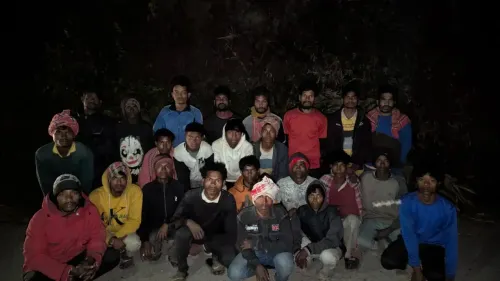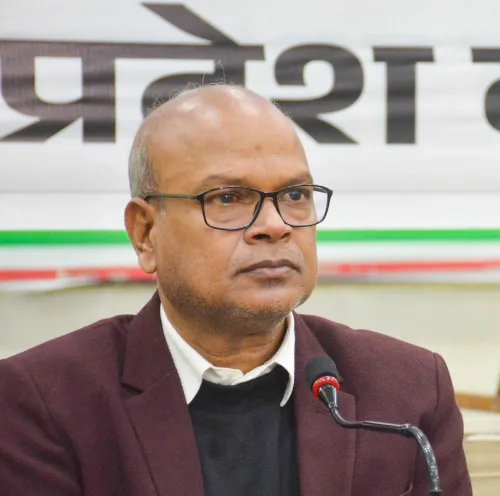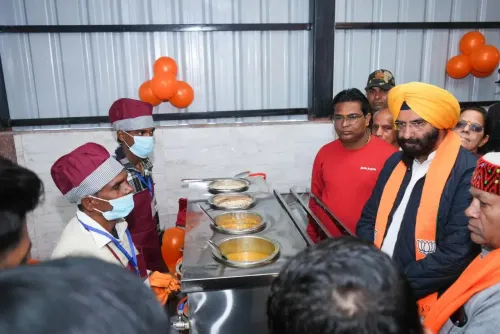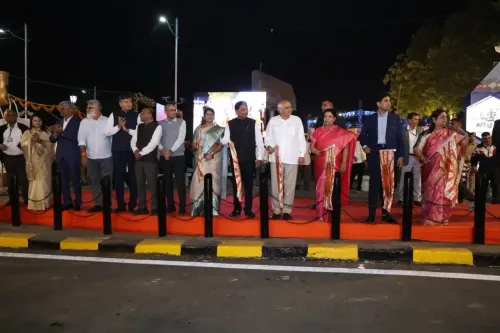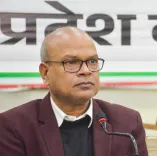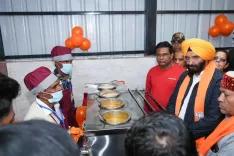Why Did CAG Criticize the Maharashtra Government for Toll Waiver on Mumbai-Pune Expressway During Covid-19?
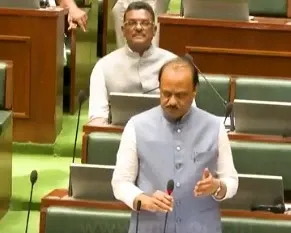
Synopsis
Key Takeaways
- CAG's audit reveals potential mismanagement of funds.
- Maharashtra government faces scrutiny over toll waiver decisions.
- Importance of contractual compliance in public-private partnerships.
- IRB's lack of insurance raises concerns about risk management.
- Recovery efforts highlight the government's commitment to accountability.
Mumbai, July 18 (NationPress) The Comptroller and Auditor General of India (CAG) has issued a harsh critique regarding the questionable revenue waiver of Rs 71.07 crore granted by the Maharashtra government to the toll operator on the Mumbai-Pune Expressway during the lockdown prompted by the Covid-19 pandemic, officials reported on Friday.
The audit report was presented by Deputy Chief Minister Ajit Pawar in the Assembly on Friday.
The audit findings revealed that Mumbai-Pune Expressway Limited (MPEL), a government entity overseen by the Maharashtra State Road Development Corporation (MSRDC), had entered into a sub-concession agreement on February 28, 2020. This agreement, effective from March 1, 2020 to April 30, 2030, was made with IRB MP Expressway Private Limited (IRB) for the tolling, operation, maintenance, and transfer of the Mumbai-Pune highway, with a sub-concession fee totaling Rs 8,262 crore.
The upfront payment from IRB to MPEL was Rs 6,500 crore (due on March 1, 2020, with a 9.5% annual interest if delayed), while the remaining Rs 1,762 crore was to be paid over the next three years. Toll collection began on March 1, 2020, and the contract continues to be active.
The audit further stated that Article 25.1 of the agreement mandated IRB to maintain appropriate insurance coverage at its own expense to safeguard against third-party claims and 'force majeure' incidents, which include non-political occurrences.
According to Article 27.2, non-political events encompass acts of God, epidemics, earthquakes, floods, landslides, cyclones, strikes, court orders, geological conditions, and similar natural events.
Article 27.7.2 indicates that in the event of such non-political occurrences, each party would be responsible for their respective force majeure costs, meaning neither party is obligated to compensate the other for such losses.
CAG noted that IRB failed to insure its operations against force majeure events.
Following the government's lockdown initiated on March 23, 2020 to mitigate the impact of Covid-19, toll collection was interrupted, qualifying it as a non-political force majeure event under Article 27.2.
IRB sought (on March 24, 2020) MPEL to absorb the toll revenue losses and waive the sub-concession fee. MPEL declined (on April 9, 2020) the request, referencing relevant clauses regarding non-political force majeure events. After further appeals from IRB for compensation, MPEL's Board of Directors convened (on April 20, 2020) and approved compensation based on an estimated revenue loss of 25 days of toll collection. The computed compensation amount of Rs 71.07 crore was subsequently deducted from the first installment of the concession fee received on June 18, 2020.
The CAG report concluded that MPEL's decision to compensate IRB Rs 71.07 crore for a non-political force majeure event violated Article 27.2 and 25.1 of the Agreement. Hence, IRB was responsible for bearing the force majeure costs, and the payment of Rs 71.07 crore by MPEL to IRB constituted a breach of the agreement and an undue advantage to IRB.
Subsequent to the dispute, a mediation report dated October 13, 2023, advised IRB to return Rs 71.06 crore to MPEL.
The government announced (in December 2023) that actions have been initiated to recover Rs 71.07 crore. Furthermore, as of August 2024, MSRDC has been instructed to reclaim Rs 71.06 crore from the contractor within a three-month period.


